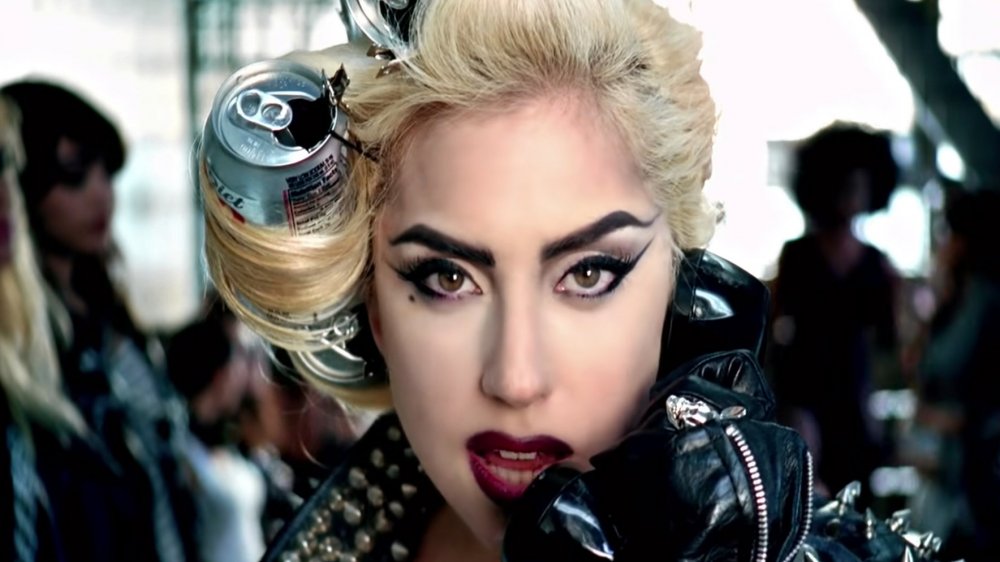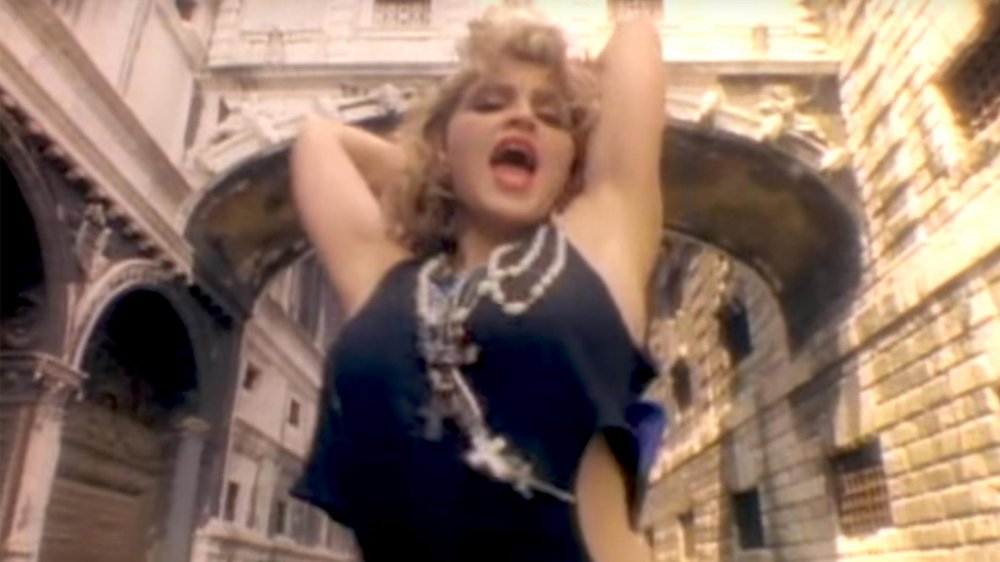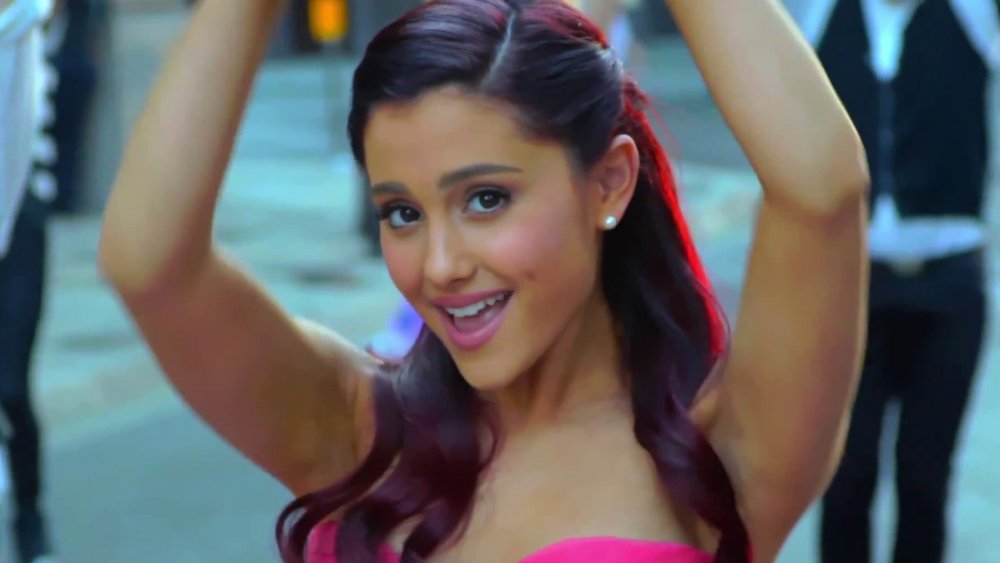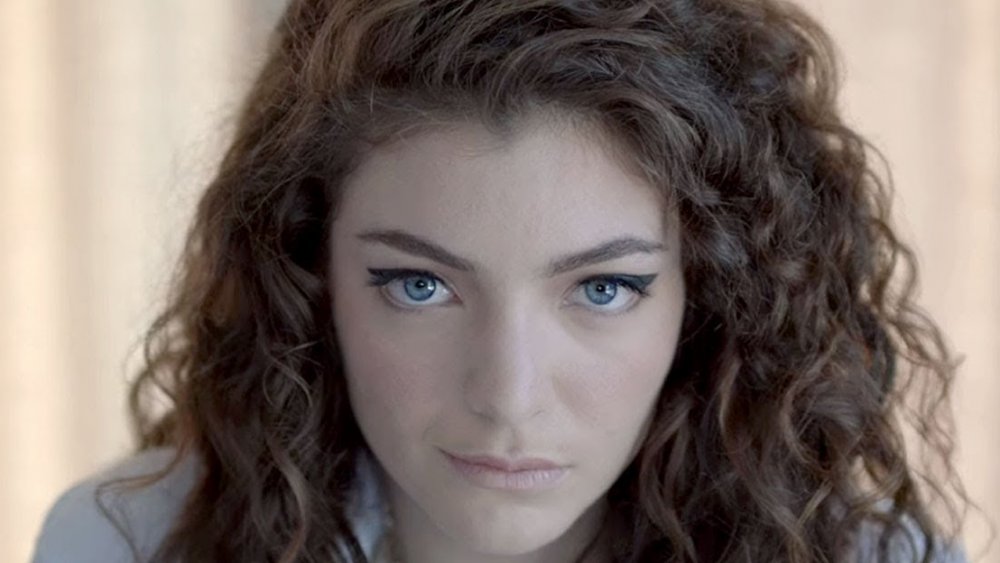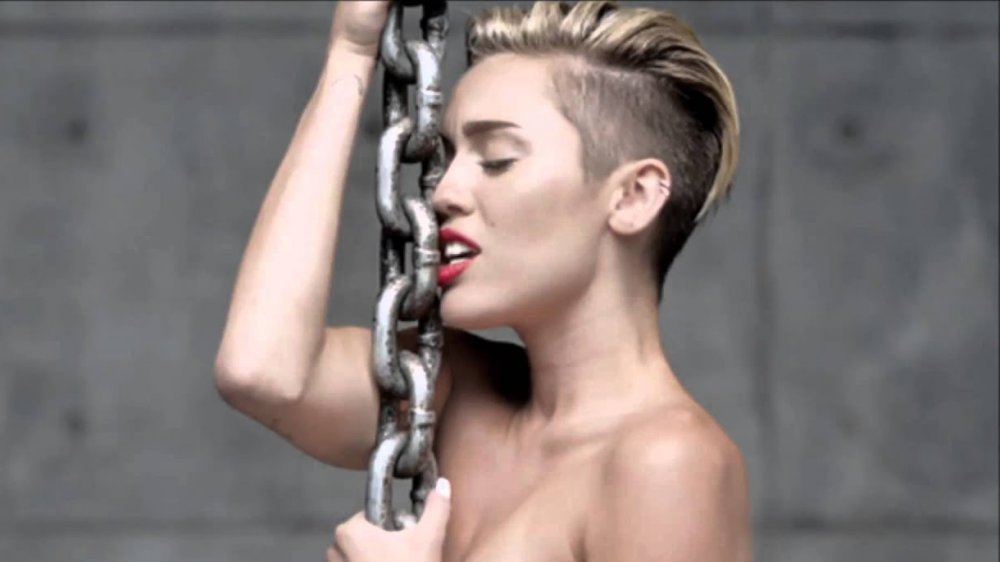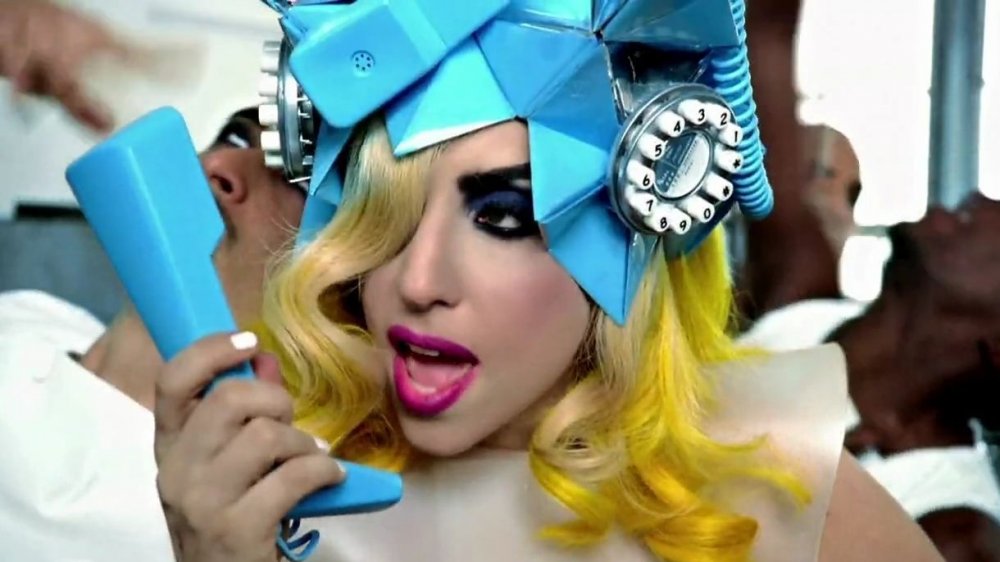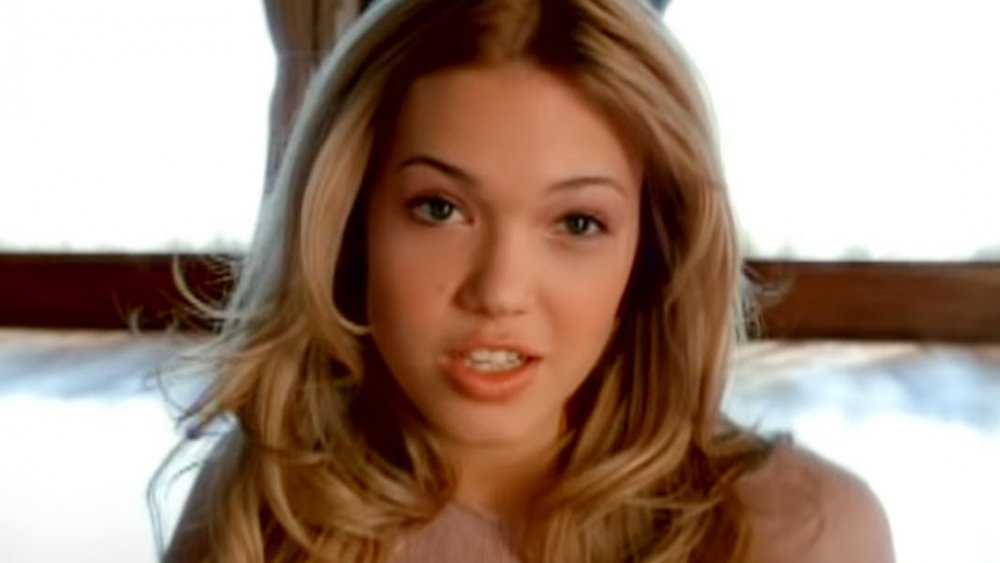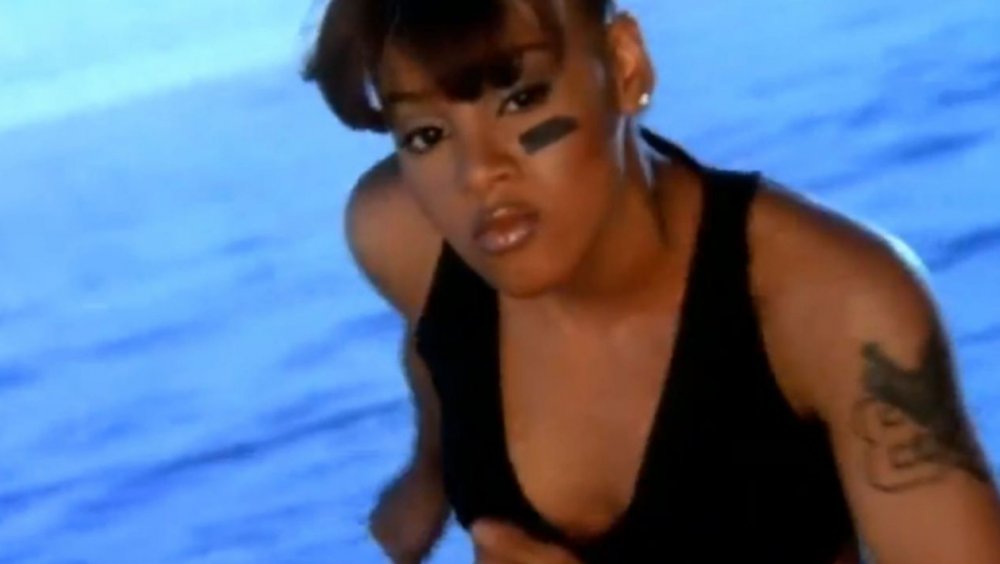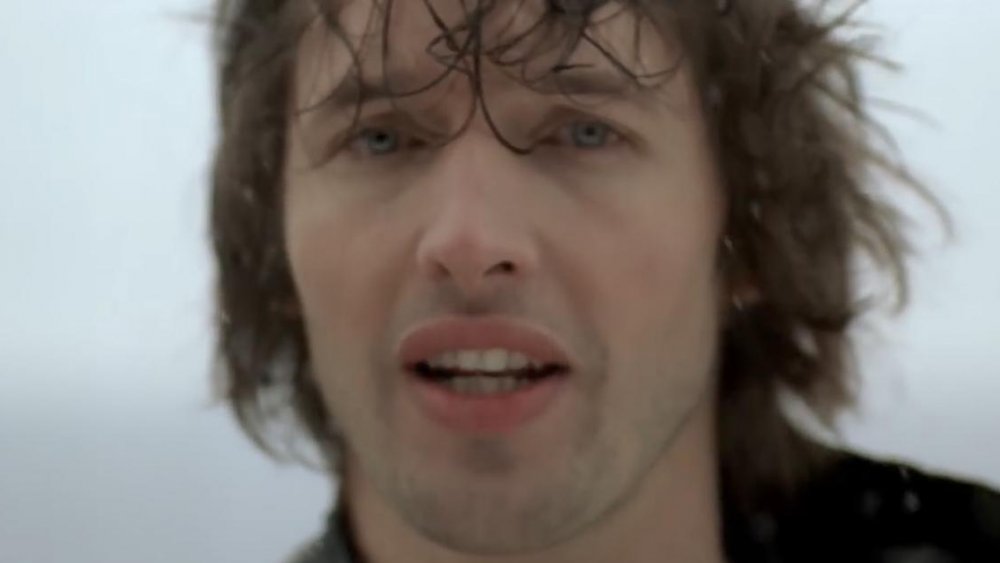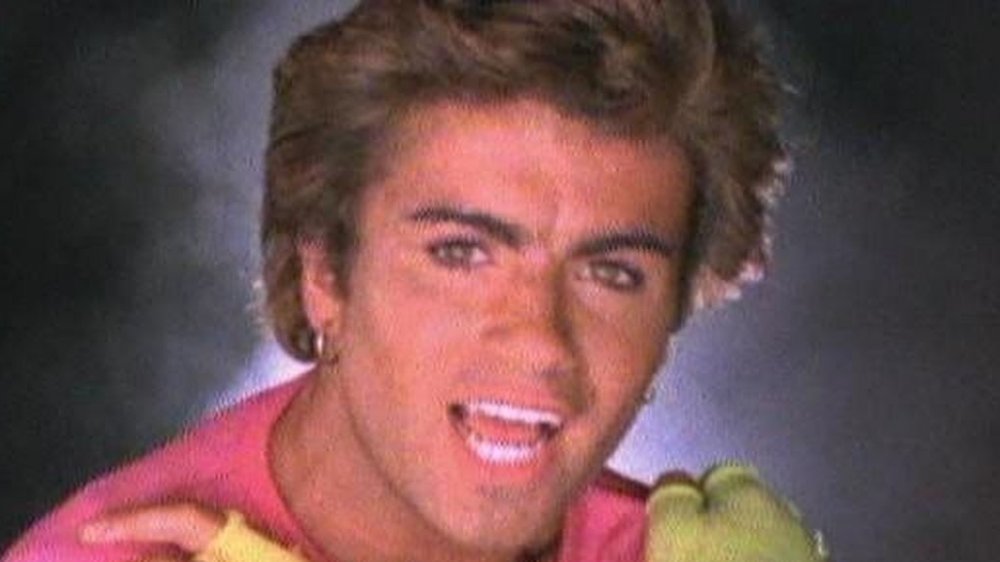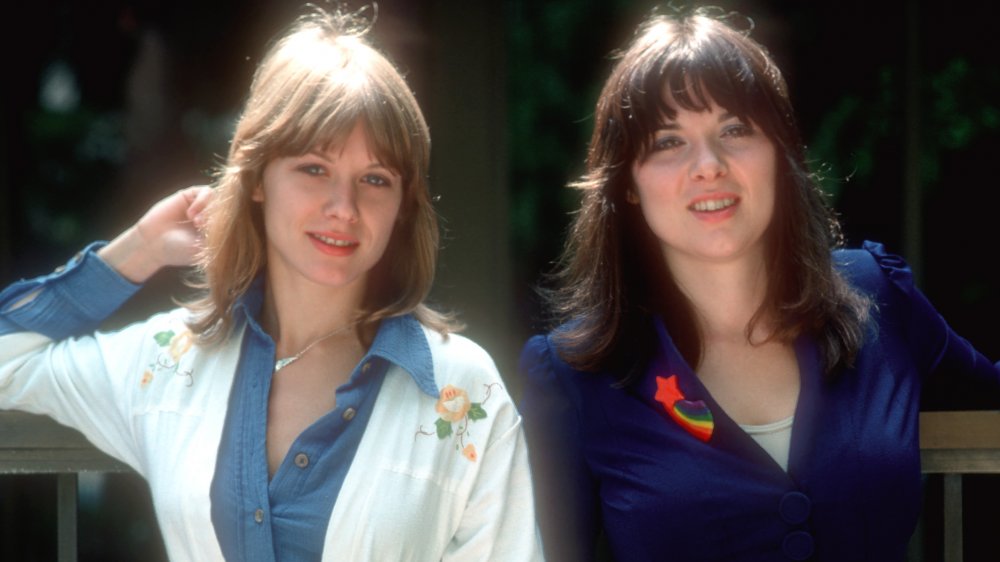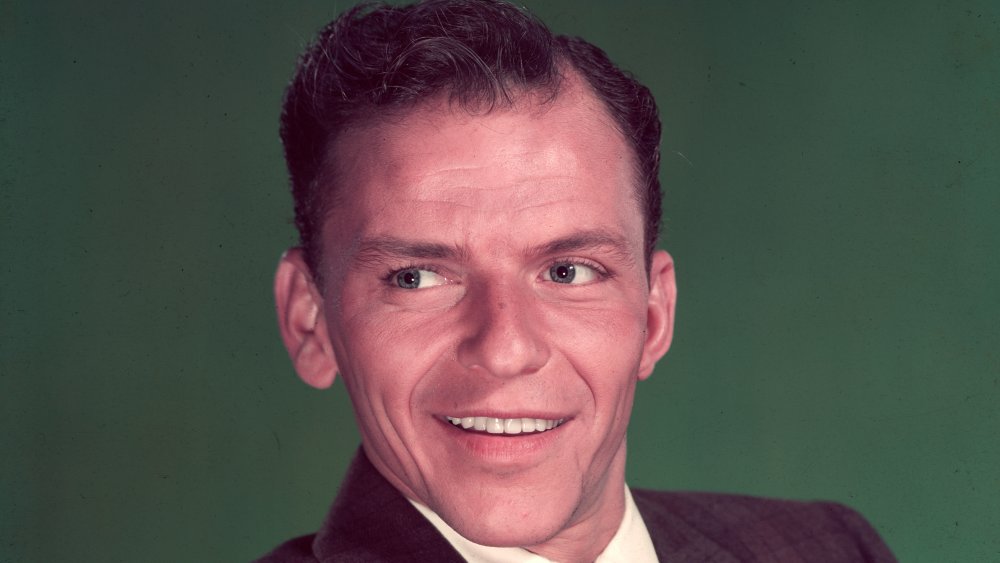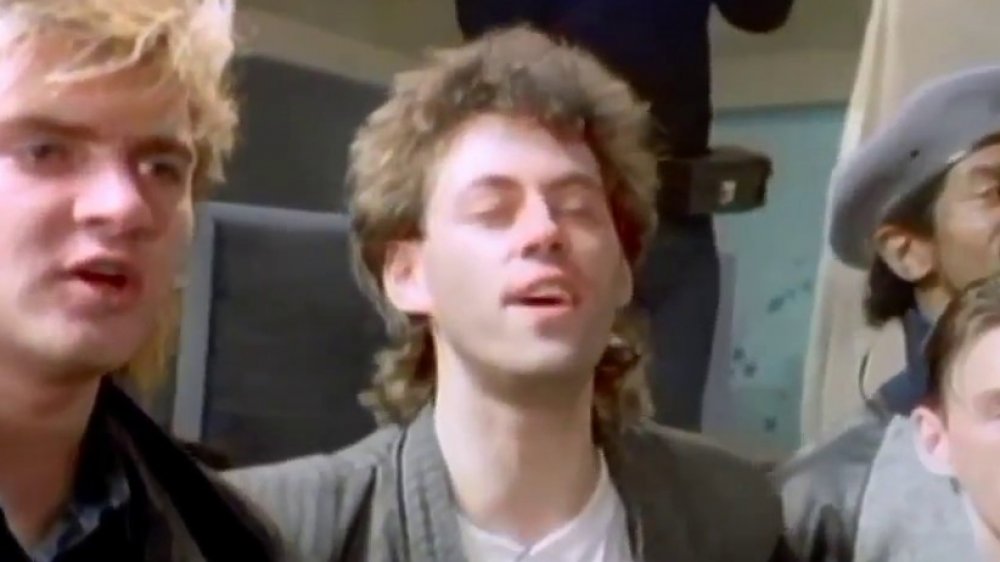Pop Stars Who Hate Their Own Famous Songs
Let's say a musician does something extraordinary and nearly impossible, like creates an original song — with a beautiful melody and profound lyrics — out of thin air. They've got the goods, so they get signed, they record their song, and before long, that thing that was once just an idea in their brain now lives in the radio airwaves, earbuds, and Spotify accounts of millions. It's a song so well made, catchy, and relatable that it becomes an international hit, selling tons of copies and winning many major awards along the way.
But here's the cruel twist: The song gets too popular, or, as the musician develops into a more serious artist, that early song embarrasses them. This is a unique phenomenon that affects the most illustrious pop stars, and they're not afraid to tell the world that the song they once relentlessly promoted is now the bane of their existence. Here are some major acts who came to loathe some of their biggest hits.
'Like a Virgin' or like a curse for Madonna?
An absolute master of reinvention, nobody has had more distinct and assured phases of a musical career than Madonna. Before electronic Madonna ("Ray of Light"), Evita Madonna, sex-positive Madonna (Erotica, the Sex book), and religious ecstasy Madonna ("Like a Prayer"), there was the "Boy Toy" Madonna. Dressing like a funky '80s club kid, she sang flirty, provocative-for-the-time tunes like "Like a Virgin" and high-energy dance floor bangers like "Holiday."
Those songs came out so long ago for Madonna that it looks like she can't stand them — to the point where they're embarrassing. "I'm not sure I can sing 'Holiday' or 'Like a Virgin' ever again," Madonna told New York radio station Z100 in 2008 (via People). "I just can't — unless somebody paid me like $30 million or something." After avoiding the songs for years, Madonna sang both during her 2016 concert tour. Gotta please the crowd, right?
Ariana Grande has no love for 'Hearts'
Today, Ariana Grande is arguably the biggest pop star on the planet, continually churning out one smash hit R&B-flavored introspective jam delivered in a massive, almost operatic voice after another, much to the delight of her army of fans (she's got more than 190 million Instagram followers). The twenty-something singer makes music for adults, but she didn't start out that way, first emerging from the Nickelodeon kid-entertainment machine.
She served as the resident dum-dum on the sitcom Victorious from 2010 to 2013, then put in a year on the spinoff Sam and Cat, which meant she got to record some tween-centric music for tie-in soundtracks and such, like the 2011 single "Put Your Hearts Up." It sounds little like later-period Grande, and the singer has thoroughly called out how much that's true. "It was geared toward kids and felt so inauthentic and fake," she told Rolling Stone in 2014, just three years after the song's release. Grande doesn't think highly of the song's music video either. "That was the worst moment of my life," she said. "They gave me a bad spray tan and put me in a princess dress and had me frolic around the street. The whole thing was straight out of hell."
Lorde no longer finds 'Royals' that regal
Lorde stuck out from all the other teenage pop singers because she seemed to be above it all, a world-weary old soul with wisdom not usually seen in someone her age. That's all on display in "Royals," her breakout hit single about the insidiousness of social expectations, which topped the American pop chart and won the 2013 Grammy Award for Song of the Year.
Lorde laments and resents a lot in "Royals," but it would seem she's also come to lament and resent the song that made her famous. It all started after hearing one too many versions of the song performed by other musicians. "I listen to people covering the song and putting their own spin on it—and I listen to it in every single form except the original one I put out," Lorde told the Daily Record (via Fuse) in 2014. "And I realize that actually it sounds horrible," she said of her original recording. She went on to savage the song in ways both constructive and hilarious. "None of the melodies are cool or good. It's disastrous," Lorde explained, while also comparing "Royals to "a ringtone from a 2006 Nokia."
Miley Cyrus isn't having a 'Ball' anymore
After years of playing and singing as Disney Channel character Hannah Montana, in 2008, Miley Cyrus completely transformed, catering to an older audience with the album Breakaway. A year later, she scored a #2 hit with "Party in the U.S.A." Only a few years after that, Cyrus' feelings about the song were complicated. "I can never say that I don't love 'Party in the U.S.A.' and that I'm not appreciative of it," Cyrus told V Magazine in 2013. "But that's not who I am, that's not where I want to sing, that's not what I want to sing, and that's not what I want my voice to sound like."
On a 2017 episode of The Zach Sang Show, Cyrus played "Marry, Eff, Kill" with three of her best-known songs. The singer said she'd marry "The Climb," eff "7 Things," and kill "Wrecking Ball," a song that hit #1 on the Billboard Hot 100 twice in 2013, thanks in large part due to an extremely popular and memorable video that featured Cyrus riding a large implement of destruction while singing her heart out. "That's something you can't take away, swinging around naked on a wrecking ball lives forever," Cyrus said. "I'm never living that down I will always be the naked girl on a wrecking ball."
Lady Gaga called out 'Telephone'
A duet between two pillars of pop like Lady Gaga and Beyoncé should have been the most monumental musical team-up of the century. "Telephone" did receive a lot of attention, earning a Grammy Award nomination for Best Pop Collaboration with Vocals, and going all the way to #3 on the Billboard Hot 100 on the strength of more than five million copies sold. In other words, it's one of the biggest successes in the careers of both the Mother Monster and Queen Bey, but the former isn't particularly fond of it.
Tellingly, it initially wasn't even supposed to be a Lady Gaga song — it was written for Britney Spears, who turned it down. So Gaga recruited Beyoncé and recorded it herself, and didn't learn to like it. "I hate 'Telephone.' Is that terrible to say?" Gaga told Popjustice. "It's the song I have the most difficult time listening to." However, her dislike doesn't stem from the bones of the tune, but the experience of making it. "The mix and the process of getting the production finished was very stressful for me. So when I say it's my worst song it has nothing to do with the song, just my emotional connection to it."
'Candy' is dandy? Not for Mandy
Nowadays, Mandy Moore is a prominent actress, the Emmy Award-nominated star of NBC's mega-popular, tearjerking family saga This Is Us. Portraying Rebecca Pearson marks the end of a successful transition for Moore from teen pop singer to actor.
Moore first found fame in 1999 with the release of So Real. Just 15 years old when it hit stores, Moore was all over TRL with her debut single "Candy," a frothy little pop nugget about puppy love that could have just as easily been delivered by one of her young, blond, female contemporaries, like Jessica Simpson, Christina Aguilera, or Willa Ford.
Moore quickly outgrew such juvenile music and delved into acting, but the legacy of "Candy" still haunted. In 2006, she told Glamour (via the Chicago Tribune) that her first recordings "were awful — just awful!" She went on to say that if money were no object, "I would give a refund to everyone who bought my first two albums."
Left Eye didn't want to 'Creep'
TLC was among the most prolific and popular hitmakers of the '90s. The group's sound and style evolved over time, from era-appropriate New Jack Swing and baggy clothes (as witnessed in videos for "Baby-Baby-Baby" and "What About Your Friends?") to the more seductive R&B flavor of "Red Light Special" and "Creep," which hit #1 on the Billboard pop chart in January 1995. The song tells the story of a woman who discovers her man has been unfaithful, and she evens the score with an affair of her own.
In 1999, the "L" in TLC, rapper Lisa "Left Eye" Lopes, revealed on an episode of Behind the Music that she hadn't even wanted to release the song. "I was totally 100 percent against 'Creep,'" she said. "If a girl is going to catch her man cheating ... why don't we tell her to just leave?" Lopes with her objections was obviously overruled, but she still considered one more protest: "I almost wore black tape over my mouth in the video."
Blunt-ly speaking, 'You're Beautiful' isn't
It's impossible to quantify just how many people in 2006 slow-danced to James Blunt's "You're Beautiful" at their prom, wedding, or put it on a mixtape for their high school paramour when they went away to different colleges. The ballad about love, loss, and eternal beauty, inside and out, was a monster hit for Blunt, a British army officer-turned-singer, topping the pop chart in both the UK and the US. The song was inescapable, and just as many people who loved it likely grew to hate it, chief among them, Blunt himself.
"There was one song that was force-fed down people's throats – 'You're Beautiful' – and it became annoying," Blunt told Hello! in 2014. "At the end of the day, I was marketed by a record company to appeal to women during Desperate Housewives' commercials and you lose 50 percent of the population in doing so."
For George Michael, 'Bad Boys' was just bad
Unlike most boy bands and pop groups — whose songs are carefully formulated by a team of industry veterans who know how to make commercially successful music — Wham! wrote a lot of their own material, or rather lead singer George Michael did. That's probably why he was able to forge an extraordinarily successful solo career after Wham! dissolved. He had at least a hand in most of the duo's hits, such as "Everything She Wants," "Careless Whisper," and "Bad Boys."
A single off of Wham!'s first album, 1983's Fantastic, the jaunty, catchy number was a minor hit in the US, but a smash in the group's native UK, peaking at #2 on the pop chart. Nevertheless, Michael fiercely hated the tune. "I hate it. It's like an albatross around my neck. It's too formularized," Michael told Smash Hits (via GM Forever) in 1986. "Those couple of months — that record and Fantastic album — were the worst point in my career. I couldn't see the wood for the trees. I didn't know what I was doing."
All Heart wants to do is make its biggest hit go away
In the late 1970s, Heart made history as one of the first female-fronted bands to find success in the extremely male-dominated world of hard rock. Heart was straight-up undeniable — lead singer Ann Wilson could wail better than Robert Plant, and her sister, Nancy Wilson, could shred out guitar licks better than her peers. "Magic Man," "Crazy on You," and "Barracuda" all still enjoy regular airplay on classic rock radio. In the '80s, Heart shifted gears into the synth-driven, adult contemporary love ballads which were the style at the time and scored hits like "Never" and "Alone," a period that reached its nadir with the 1990 hit "All I Wanna Do Is Make Love to You."
It's a very specific and bizarre story song about a woman who is married to an infertile man who picks up a drifter off of the side of the road for a one-night stand that successfully results in impregnation. "As a human being I thought it was pretty disgusting," Wilson told Rolling Stone. "I thought it was gross." That's the reason, Wilson says, why the band no longer includes "All I Wanna Do Is Make Love to You" in its concert setlist.
If Frank Sinatra had his way, he'd have avoided 'My Way'
Frank Sinatra is one of the greatest singers ever, a master of torch songs, brunch jazz, and the Great American Songbook. Out of the hundreds of songs he recorded, three stick out and became his signatures: "New York, New York," "My Way," and "Strangers in the Night." Start spreading the news: Ol' Blue Eyes hated all three of those songs. According to Page Six, at a Friars Club dinner in 1983, Sinatra approached the microphone as the band played "New York, New York," the song which he'd recently taken to performing as his encore song at concerts, a replacement for his old show-ender, "My Way." Upon hearing "New York, New York," he flew into a rage, yelling, "Don't ever play that song again! I had enough of 'My Way,' which was a pain in the a**, and I don't want this one to become a pain in the a**!"
According to his wife, Barbara, in her memoir, Lady Blue Eyes, the Chairman of the Board said Frank's big songs "did absolutely nothing for him," even "Strangers in the Night." He said he "just cannot stand this song" at a 1975 show, and seven years later, at another concert, he called it "The worst f***ing song I've ever heard" (according to Sinatra's website).
Bob Geldof and the worst Christmas ever
Band Aid is technically a one-hit-wonder, but that's just because the act was a one-off conglomeration of British pop and rock stars of the early '80s. Boomtown Rats frontman Bob Geldof saw a news report on TV about the famine ravaging Ethiopia at the time and decided to help out in a way he knew he could — with music. He brought together acts like Phil Collins, Bono, George Michael, Sting, Duran Duran, Boy George, and Bananarama to make "Do They Know It's Christmas?" a catchy Christmas pop song. The lasting impact of the song was two-fold. Not only is the song a perennial favorite each December when thousands of radio stations start playing Christmas music, but it set off the well-meaning '80s fad of celebrity supergroups recording charity singles. Without "Do They Know It's Christmas?" benefitting sufferers of famine in Africa, there would've been no "We Are the World," which also aimed to raise money for famine relief, for example.
Despite its success and importance, Geldof can no longer stomach the song. In 2010, he told The Daily Telegraph that he thinks "Do They Know It's Christmas" is one of "the worst songs in history." "I will go to the supermarket, head to the meat counter and it will be playing. Every f***ing Christmas."

